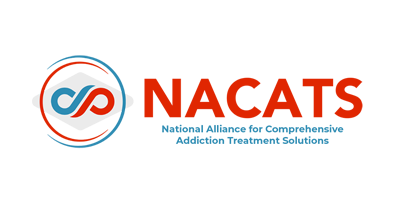
If you’re feeling like you’re at the mercy of your heroin use, you’re not alone. The overdose mortality rates in Appalachia are over 65% higher than in the rest of the nation. In the United States, we’re losing over 47,000 people to drug overdoses every year – many of them involving heroin or fentanyl. It is incredibly difficult to stop taking this substance, especially on your own, and especially if you’ve been taking it for a while. It may feel like you’re trapped inside your opioid use disorder right now, but thousands of people recover from heroin addiction every year. We know you can, too.
At ReVIDA® Recovery, we want you to know that we see your battle and we want to help you fight. No matter what stage of heroin addiction you find yourself in, there’s always hope. Today we’re here to talk about the stages of heroin addiction and how they can lead to recovery, especially with the right kind of treatment.
Table of Contents
What Are the Stages Of Heroin Addiction?
Heroin addiction doesn’t look the same for everyone, and the stages can vary from person to person. Generally, there are 4 stages of heroin addiction:
The First Stage: Experimenting With Heroin
The experimental stage happens when someone first starts using heroin. People begin for a variety of reasons. It could be friends, classmates, or even family members that influence someone’s decision to try it. On rare occasions, heroin use begins if someone is unable to continue getting their opioids from a doctor. Heroin is an illegal synthetic opioid, which means that any time someone uses it, they’re breaking the law.
This is usually the stage of mild heroin use. Maybe you only use it when you’re with friends or in pain. You may begin to associate heroin with happy, euphoric feelings – which can make you want to use it more. People may unknowingly use heroin as a coping mechanism during this time, especially if they’re experiencing difficult feelings or chronic pain.
For some people, the first stage is where their heroin use ends. They may decide it’s not conducive to their way of life or they don’t like the way it makes them feel. For others, experimental heroin use can lead to regular heroin use.
Regular Use Stage: When it Becomes a Habit
Regular heroin use begins after someone has made the conscious decision to continue taking it for pain relief or pleasure. If you’re using heroin daily or weekly, it has likely progressed to regular use. People who regularly use heroin might begin to make small lifestyle changes to accommodate their habit. They might call into work more often or change their work schedule. If they’re in school, grades might start to drop as a result of heroin use. They may begin to spend more time alone because they don’t have the energy or desire to be social.
When someone begins to use heroin regularly, they might also start to notice some health problems as a result. Heroin is sold illicitly, which means it isn’t regulated and can contain anything. Some dealers will mix fentanyl with heroin to increase its effects and save money. Other dealers will mix heroin with baking soda or sugar to make it look like there is more of it (another way for them to save money). These things increase someone’s chances of experiencing side effects, which could also impact someone’s habits and lifestyle.
Some of the common side effects of regular heroin use include:
- Collapsed veins (caused by injecting heroin)
- Changes in mood or behavior
- Liver and kidney issues
- Heart problems
- Shortness of breath
- Respiratory infections
- Bacterial infections
Withdrawal Stage: Uncontrolled Addiction
At this stage, the body has become physically dependent on heroin. It feels abnormal, and sometimes even painful, without it. At this point, not taking heroin becomes dangerous because the withdrawal symptoms can be severe. Withdrawal symptoms can begin as soon as 6 hours after someone’s last dose. If someone wishes to stop taking heroin at this stage, or if they can no longer afford it or find it, they’ll likely need to detox in a medical facility.
Common withdrawal symptoms that come with heroin use include:
- Insomnia
- Anxiety/depression
- Memory issues
- Tremors
- Nightmares
- Increased blood pressure
- Gastrointestinal distress
- Sweating
- Joint, bone, and muscle pain
- And more
Recovery Stage: In the Clear?
The recovery stage happens when someone has stopped using heroin and is working on sobriety or healing. The recovery stage won’t look the same for everyone. For some, it will involve medication-assisted treatment and detox. Others may choose to enroll in an inpatient or outpatient treatment plan. During this stage, many work at healing the relationships that have been muddled by addiction. The recovery stage is also when people learn how to create healthier lives, master coping skills, and create new goals.
Being in the recovery phase does not mean someone is “in the clear”. Relapse is common, and staying away from heroin isn’t easy. If and when someone relapses, a change in their treatment plan can be helpful. A relapse doesn’t mean someone is no longer in recovery, and it’s not a sign of failure.
The Dangers Of Heroin
The short-term side effects of heroin are fairly well-known. You may have heard of some of them. Cravings, sleep problems, tremors, poor decision-making, trouble with work and relationships – these are the things people often hear about. But there are long-term side effects of an opioid use disorder, too. Regular use of heroin can result in changes to the brain and its reward systems, the body (particularly the gut), and chronic mental health conditions. Emotionally speaking, heroin can alter the way you think, make decisions, and set goals. Heroin is also illegal, which means anyone who is using it risks jail time or other life-altering consequences.
Lastly, anyone who takes heroin risks an overdose. Heroin is often cut (or mixed) with other drugs, and because it isn’t regulated, no one can be sure of what’s in it. Dealers will often cut heroin with fentanyl, an opioid that is 50-100 times stronger than heroin. They do this to save money, stretch out their inventory, or increase the “high”. Unfortunately for the consumer, this causes overdoses, which can lead to health complications or even death. Overdose can also happen if too much heroin is taken, or if it’s taken alongside alcohol.
Detox and Heal From Heroin Addiction at ReVIDA® Recovery
If you or someone you love is experiencing the first three stages of heroin addiction, we want to help you reach stage four: recovery. At ReVIDA® Recovery, we have seen firsthand how effective evidence-based heroin addiction treatment can be. It doesn’t matter how long you’ve been taking heroin or how impossible it feels to stop right now – recovery is always possible. Let’s talk about some of the treatment options we offer here that could be right for you.
Medication-Assisted Treatment (MAT)
While you’re here for MAT, you’ll be closely monitored by a compassionate and knowledgeable staff. Medications are available that can help in alleviating heroin withdrawal symptoms and guiding you safely into recovery. You’ll also have access to resources that can help you on your journey moving forward, including individual counseling, group counseling, and support groups. In an MAT program, we use medications alongside traditional therapy to guide you away from opioids and into a healthy life of recovery.
You’ll also have the option to move forward with our outpatient treatment program. If a higher level of care is warranted, we will provide referrals for a local inpatient or residential treatment program. Your clinician will go over all of your options to set you up for success.
Buprenorphine (Suboxone®) Treatment
Medication-assisted treatment, or MAT, is a safe and evidence-based way to treat OUD. At ReVIDA® Recovery, we support the use of buprenorphine (Suboxone®) because it has been proven to reduce cravings while working to prevent relapse. To receive buprenorphine (Suboxone®) treatment, you will have to be opioid-free for 24 hours.
Outpatient Rehab Services
We believe that both individual and group therapy are critical components in the treatment of OUD – especially if you’re looking for long-term recovery. This is a safe and supportive space where you will learn how to manage your triggers and create healthy coping mechanisms. Our behavioral healthcare team is composed of licensed therapists, certified counselors, care coordinators, and peer recovery specialists who are standing by and ready to help. If we can treat your addiction where it started, at its roots, your chance of recovery is greater than if we were to simply treat your withdrawal symptoms.
At ReVIDA® Recovery, we’re standing by to help you reclaim your life from heroin. Recovery is possible, and you can start your journey to wellness whenever you’re ready. To learn more or to schedule an appointment, please call us today at 423-631-0432.
FAQs About Stages of Heroin Addiction
Why is medical supervision important when detoxing?
Health complications can occur during detox, so it’s important to be monitored by a qualified physician. It’s also tempting to return to heroin use when withdrawals get too uncomfortable, so having additional support can foster long-term recovery.
What are the signs of a heroin overdose?
Signs of a heroin overdose include pinpoint pupils, slurred speech, loss of consciousness, and coma.
Can you get addicted to heroin after first used?
It’s highly unlikely to become dependent on heroin after using it once. It takes time for the body and mind to form an addiction and develop a tolerance for any drug.










